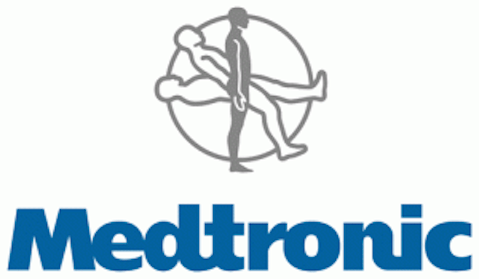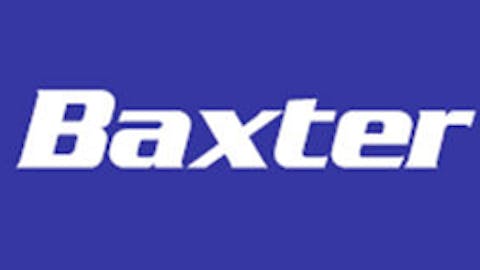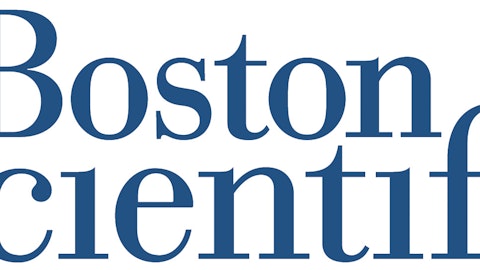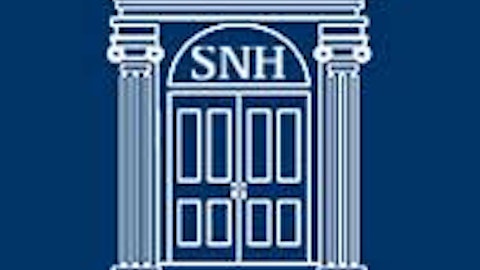It is hard to remember a time when the market was as overheated as it is today; even during the tech bubble, there were non-tech stocks that were cheap. Today, few stocks in any sector are even worth a closer look based on earnings multiples.

Strong business performance
As the market leader in many of the product markets it serves, Medtronic, Inc. (NYSE:MDT) enjoys the trust of doctors and scale of operations that few other companies can claim.
Although many of its products are not meaningfully differentiated from those of, say, Boston Scientific Corporation (NYSE:BSX), Medtronic, Inc. (NYSE:MDT) profits from high customer switching costs due to doctors’ reluctance to switch to a different brand if the one they are using suits their needs. Along with scale advantages that allow the company to match competitors’ prices, high switching costs allow Medtronic, Inc. (NYSE:MDT) to defend its leading market share.
Both Medtronic, Inc. (NYSE:MDT) and Boston Scientific Corporation (NYSE:BSX) suffered painful product recalls during the last few years, but Medtronic’s diverse product base allowed it to absorb the shock better than its competitor; Boston Scientific Corporation (NYSE:BSX) lost significant ground in the defibrillator market and is unlikely to recapture its market share.
Meanwhile, Boston Scientific Corporation (NYSE:BSX)’s bare metal stents have come under greater scrutiny after multiple independent studies have shown them to be no more effective than an aspirin regiment. As a result of these mishaps, the company lost more than $3 per share over the last four quarters.
Another of Medtronic’s competitors, St. Jude Medical, Inc. (NYSE:STJ), has done relatively well compared to Boston Scientific Corporation (NYSE:BSX). Its Angio-Seal device is the undisputed leader in its market, and it has not suffered from the extensive product recalls that plagued Boston Scientific Corporation (NYSE:BSX) and Medtronic.
In addition, St. Jude Medical, Inc. (NYSE:STJ) is investing heavily in atrial fibrillation and related devices that will directly compete with Medtronic’s offering. However, customer stickiness will enable Medtronic to remain the leader in the market, while St. Jude struggles to gain ground.
Predictable business
Unlike Oracle Corporation (NYSE:ORCL) and Cisco Systems, Inc. (NASDAQ:CSCO), which are great companies that must undergo constant change to remain on top, Medtronic’s business and market share will look substantially the same in ten years as they do today. Breakthrough devices are rare in this industry; research and development is geared toward improving existing devices and methods rather than inventing entirely new ones. As a result, Medtronic’s scale advantage should enable it to maintain a sizable lead on would-be competitors.
Trading at a discount
Medtronic sells for 16.5 times earnings, while St. Jude sells for 24 times earnings (the unprofitable Boston Scientific sells for a slightly lower multiple of sales after backing out net cash). Both companies have similar records of reliability, excluding Medtronic’s one major recall, and should trade closer together.
But, more importantly, Medtronic trades at an absolute discount to fair value. If you divide last year’s free cash flow by its current market capitalization, you get a free cash flow yield of nearly 8%.
If Medtronic can simply continue to generate its current level of free cash flow, investors will earn a higher return than the market over the next five years. If Medtronic can grow its free cash flow, investors will receive a double-digit annual return over a long holding period. Both are great results for long-term investors.
The article Is This the Market’s Last Remaining Bargain? originally appeared on Fool.com.
Ted Cooper has no position in any stocks mentioned. The Motley Fool owns shares of Medtronic. Ted is a member of The Motley Fool Blog Network — entries represent the personal opinion of the blogger and are not formally edited.
Copyright © 1995 – 2013 The Motley Fool, LLC. All rights reserved. The Motley Fool has a disclosure policy.



